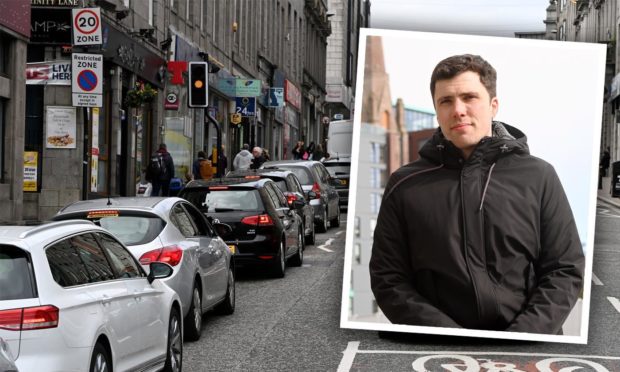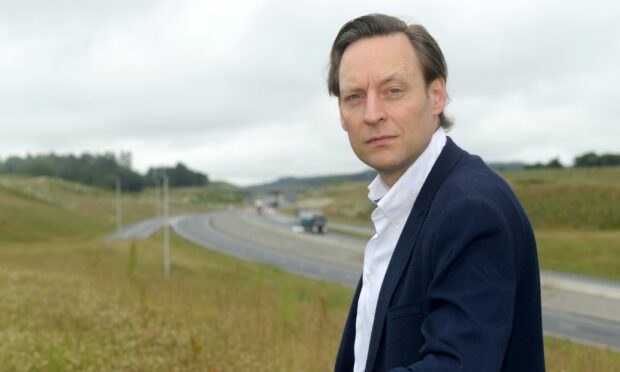Council chiefs have categorically denied they are planning to introduce any London-style congestion charge which would see drivers have to cough up £15 each time they drive into the city centre.
It was reported last weekend that Scotland’s seven main cities, including Aberdeen City Council, had submitted controversial proposals to the Scottish Government’s City Centres Recovery Taskforce.
The Mail on Sunday claimed drivers would be charged every time they drove into the city if the plans were approved – similar to London, where motorists pay a daily fee of £15.
It reported the congestion charge proposals had been lodged along with Glasgow, Edinburgh, Dundee, Perth and Kinross, Stirling and Highland councils.
‘No intention’ of introducing charge
However, senior councillors in the Granite City have categorically denied there are plans for such a charge in the north-east.
“The administration has no intention of bringing forward any kind of charge,” said Councillor Ryan Houghton, convener of the local authority’s city growth and resources committee.
“We have made all our ambitions clear with the development of a low-emission zone and other transport strategy projects to improve air quality in the city.”
Mr Houghton also made clear the council has no intention of introducing a parking levy, where companies with 11 or more spaces would be required to pay £415 per space every year.
The seven councils are understood to have made a series of recommendations to the taskforce, although it is not yet known what these are.
‘Hammering motorists not right’
But north-east MSP Liam Kerr, who is the Scottish Conservatives’ net zero spokesman, warned more sanctions on car users may hurt city centre businesses.
“Hammering motorists disproportionally at every turn is not the right approach to reach our climate targets,” he said.
“This may deter people from visiting our city and town centres, putting businesses at even greater financial risk.”
A spokesman for the Scottish Government said: “We have received recommendations from local authorities which we will consider; we will listen to partners from the public sector, businesses and community and voluntary organisations as we make progress.”

